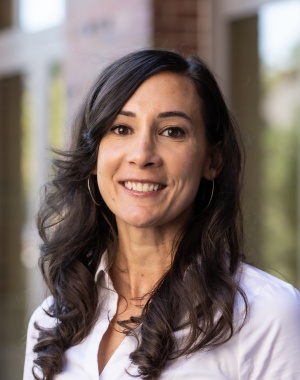
Mara Ostfeld, PhD, associate faculty director at Poverty Solutions, assistant research scientist at the Ford School of Public Policy, research director at the Center for Racial Justice, and faculty lead for the Detroit Metro Area Community Study, focuses her research on understanding the relationship between race, gender, media, and public opinion.
Ostfeld joined Michigan Minds to discuss a study that surveys residents of Puerto Rico to better understand their opinions.
“Our goal is to enhance the political representation of Puerto Ricans and to increase accountability to Puerto Ricans, specifically for designing and administering the first-panel survey, meaning that we reach the same people when we try to survey them over time at different time periods with the goal of understanding their views, their experiences, and aspirations,” she says.
“In doing so, we’re striving to accomplish two goals. We’re working to help build the local research infrastructure that equips Puerto Rican students and faculty with the tools needed to advance their own research agenda and to also hold local and federal government bodies accountable. Equally notable and important to us, as we’re working to provide the public and policymakers alike with high-quality data on the experiences and perspectives, and goals of people in Puerto Rico to ensure that their voices can’t be dismissed or ignored in the policymaking process.”
Ostfeld explains that the lack of existing data makes the initiative more important than ever, especially with the complications created by Hurricane Fiona.
She also provided context about the US government’s role in regulations for Puerto Rico, specifically noting that Puerto Ricans do not have representation in Congress, the right to vote in US presidential elections, and very little say in their own fiscal decisions.
“There’s an urgent need in this context to ensure the voices of people living in Puerto Rico have a voice in their government, especially at times when they’re facing unprecedented challenges, including hurricanes, earthquakes, and deep economic hardship,” said Ostfeld.
She also discusses the benefits of receiving an OVPR Anti-Racism grant, and how the lab has been able to overcome the difficulties of administering the surveys.
“If we really wanted representative data, which we do, we realized we would have to go door to door to enumerate housing units ourselves, and that required a lot more funding. But thanks to OVPR, we’re not only able to train more students, but we’re also able to pay them a good wage to do this work,” Ostfeld says.
In addition to the benefits of the opinion lab surveys for Puerto Rico specifically, she adds, these types of polls are also helpful for a democratic nation in general.
“Voting is important….We rely on measuring and assessing public opinion on a broader range of issues. It doesn’t capture everything. And for that reason, we need public opinion polls in places even where we can vote, but especially in places where people can’t vote.”
Click here to listen to the interview: https://open.acast.com/public/streams/5bbce70b05777cdc119a4a4a/episodes…
This article and Michigan Minds recording were created by the U-M Office of Public Engagement & Impact
